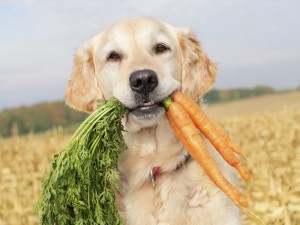 If you are like more than half of the pet guardians out there, you are probably looking for ways to help your pet lose some weight and be more active. Pet obesity is a major problem in the United States, with roughly over 55% of all household pets considered overweight or obese.
If you are like more than half of the pet guardians out there, you are probably looking for ways to help your pet lose some weight and be more active. Pet obesity is a major problem in the United States, with roughly over 55% of all household pets considered overweight or obese.
Before we were aware of some of the direct correlations between certain diseases and weight, we might have considered a slightly rotund kitty cute, or even funny. However, now that we have a greater understanding of the perils of obesity and the many health challenges that impact our pet’s quality of life when a healthy weight isn’t maintained, we realize fat pets aren’t so funny after all.
And, now we are entering into the most challenging season for weight management (for pets and people, alike)! Since Thanksgiving brings with it loads of food and just as many distractions, this might be the ideal time to talk, um, well, turkey.
Healthy Weight Management & Nutrition Tips for Your Pet
Did you know that overweight pets are more than likely to die at a younger age than those pets kept at a healthy weight? Obesity has also been linked to diabetes, cardiovascular disease, kidney disease, joint stress and osteoarthritis (which contributes to limited mobility, the leading cause of euthanasia in dogs), and is associated with lower urinary tract disease and bladder stones.
Because we love our pets, we want them to be healthy, active, and feeling good. In order to help your pet stay at, or get back to, his or her optimal weight, here are some suggestions.
- WELLNESS EXAMS – First of all, it’s important to understand your pet’s current health by maintaining recommended wellness exams. It’s also important to have a baseline of how healthy your pet currently is to out any underlying issues before starting him or her on a new diet.
- PORTION CONTROL – Stick to the recommended diet and portion size for your pet and avoid leaving unfinished food in bowls, particularly if you are a multiple pet household, since it is difficult to know who snarfed down the last of the kibble.
- WHOLE FOODS/HEALTHY FOODS – Choose whole foods based pet food with meat (rather than meal) as the first ingredient, coupled with vegetables, fruits, healthy grains, and vitamins, minerals, and antioxidants. Stay away from kibble and canned foods that are laden with additives and preservatives. And, by the way, many low calorie foods naturally encourage an array of higher quality, nutritious ingredients, but be sure to read the label.
- PRAISE YOUR PET – Avoid rewarding your pet with treats and choose verbal praise, pets, or an extra game of fetch as a way to show your love and approval of good behavior. If you feel you must use a treat, try baby carrots instead of dog biscuits.
- INVOLVE THE FAMILY – Ask your family to help keep your pet in good health by explaining the seriousness of healthy weight management and the importance of avoiding sneaking scraps, leftovers, or treats to your all-to-willing-to-eat-everything pet.
- HOLIDAYS COUNT – During holidays, ask your guests to please never give your pet food off of plates or from the leftover bin. Not only are you keeping your pet’s weight in mind, but you are also reducing the chances of a pet poisoning emergency or other gastrointestinal illness.
- GET MOVING – Daily physical activity, such as walks and runs in the park, are fun and encourage your pet to stay fit and trim. It’s also a wonderful way to bond over a lively game of fetch with Freckles or “Cat Dancer” with Princess.
To better understand your pet’s optimal weight and diet, please schedule a wellness examination. We can help recommend the right foods for your pet and even tailor a diet or exercise plan to keep your fur friend active, healthy, and happy for years to come.

